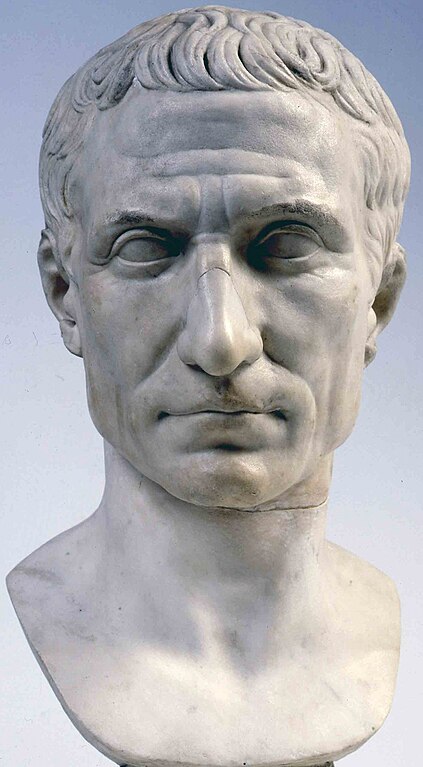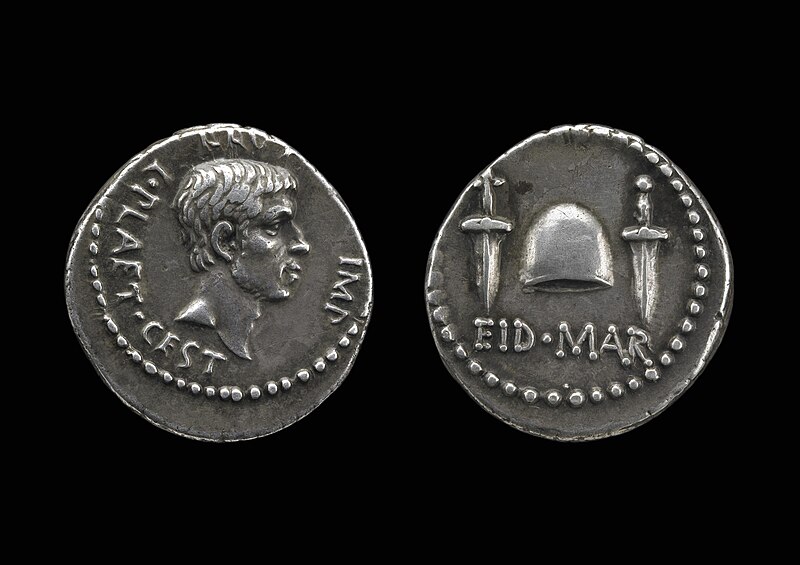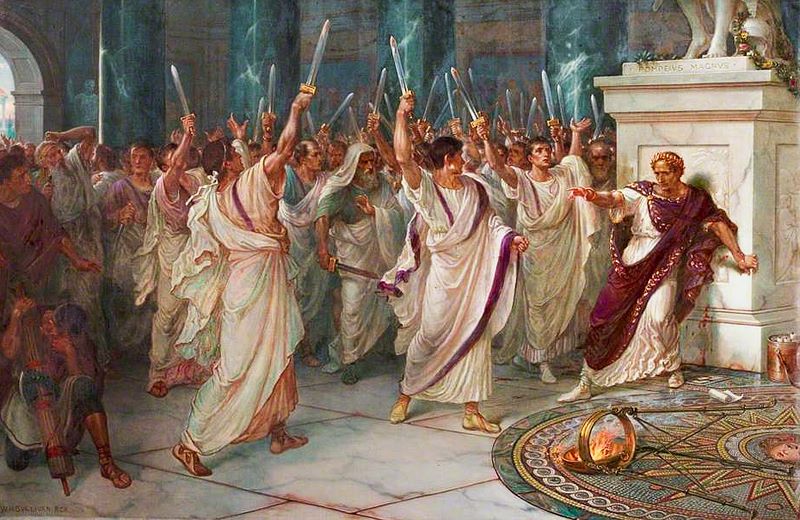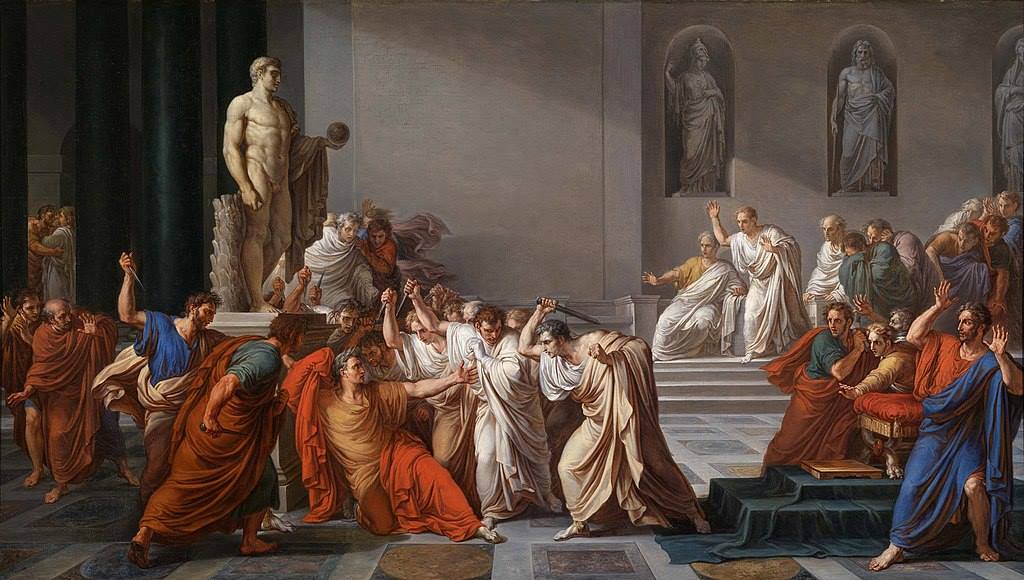The Assassination of Julius Caesar stands as one of the most infamous political murders in history. Gaius Julius Caesar, a legendary figure of Ancient Rome, was celebrated by many as the embodiment of Roman strength and pride. However, while ordinary citizens hailed him as their hero, his political adversaries viewed him as a dangerous, narcissistic individual. To them, Caesar wasn’t just an ambitious leader; he posed a threat to the very foundation of the Roman Republic. In this piece, we will delve into the key reasons why Gaius Julius Caesar became the target of a conspiracy that led to his tragic demise.
Caesar’s Ascent and the Civil War: A Nation Divided
After his triumphant campaign in Gaul, Gaius Julius Caesar returned to Rome not as a mere victor, but as a formidable contender for supreme power. The territories and riches he secured through his conquests granted him not just vast wealth, but an unmatched military might, represented by his loyal legions.
Contrary to Roman tradition, where victorious generals disbanded their legions to underscore the primacy of civilian over military power, Caesar held onto his. Recognizing the leverage this granted him over the Senate, he audaciously led his army across the Rubicon River, initiating a civil war and direct confrontation with Rome’s established order. Caesar’s ambition, however, wasn’t just about wielding power. It was about reshaping Rome in his vision.

This civil conflict culminated in Caesar’s overwhelming victory and his consolidation of power. To the masses, Caesar’s ascent was often seen positively. They hailed him as a champion of the people, a leader who undertook massive public works, distributed land, and enacted reforms that benefitted the common Roman citizen. His charismatic appeal, combined with his ability to address the needs of the general populace, made him beloved by many.
However, the political elites and senators of Rome viewed Caesar’s rise with increasing alarm. His overt displays of power, combined with his refusal to adhere to established norms, struck fear into the heart of the Senate. The specter of Lucius Cornelius Sulla, Rome’s prior dictator who had initiated a bloody purge of his political enemies, loomed large. Many senators saw parallels between Sulla and Caesar, fearing the inception of another autocratic regime that would sideline the Senate and put an end to the Roman Republic.
Moreover, whispers spread through the corridors of power about Caesar’s purported divine aspirations. Rumors that he sought to establish a royal dynasty and his apparent flirtation with deification only intensified the Senate’s apprehensions. Such acts, traditionally antithetical to Roman values, were seen by many senators as steps towards an imperial and dynastic rule, further distancing Caesar from the established elite.
While some senators openly challenged Caesar’s authority, others simmered in quiet resentment. Both active and passive opposition grew, as the Senate bristled at the thought of a singular leader erasing centuries of Roman tradition. This burgeoning divide between the populist Caesar and the Roman aristocracy set the stage for one of history’s most notorious betrayals.
The Conspiracy Unfolds: Uniting Against the Dictator
Julius Caesar’s meteoric rise and consolidation of power raised many eyebrows among Rome’s political elite. The palpable tensions between Caesar and various factions of the Senate deepened, eventually leading to the emergence of a secretive group determined to protect the core values of the Roman Republic. This group, a diverse assembly of senators, politicians, and military men, united in a conspiracy against Caesar. Out of this cohort, about 20 played active roles in the final act of assassination.
The conspirators, dubbed the “Liberators,” had various motivations, but a common thread bound them: the fear of Caesar’s despotic rule and the potential end of the Roman Republic. Each conspirator had his personal reasons, intertwined with broader political motivations.
Marcus Junius Brutus: Among the most notable conspirators, Brutus’s involvement was laden with personal conflict. He was swayed by the philosophy that the Republic was the rightful and best form of government for Rome. Yet, his relationship with Caesar was complex. Rumored to be Caesar’s illegitimate son and certainly a close ally in earlier years, Brutus’s participation underscored the depth of concern even within Caesar’s inner circle. The need for Rome’s freedom, in his view, overshadowed personal ties.

Gaius Cassius Longinus: Often considered the mastermind behind the plot, Cassius was driven by both envy and genuine concern for the Republic. His disdain for Caesar’s monarchical aspirations was evident. He believed that the power Caesar wielded was dangerously unchecked and sought to restore balance to Rome.
Decimus Junius Brutus Albinus: A loyal officer under Caesar during his military campaigns, Decimus’s motivations were more political than personal. Viewing Caesar’s rise as a threat to the Senate’s authority, he joined the conspiracy to realign Rome’s power structure.
Gaius Trebonius: Having served under Caesar and even benefited from his rule, Trebonius’s participation surprised many. But underlying tensions, including disagreements over Caesar’s decisions, likely propelled him towards the conspiracy.
Lucius Tillius Cimber: Initially a strong supporter of Caesar, Cimber became disenchanted over time, particularly due to Caesar’s refusal to grant his brother’s return from exile. This personal slight, coupled with broader concerns over Rome’s direction, guided his hand in the plot.
As the conspiracy gained momentum, meetings held in shadowed corridors and whispered conversations became the order of the day. The conspirators aimed to strike a blow that would reverberate through Rome’s core, hoping to resurrect the ailing Republic from the shadow of an emergent dictatorship. But the depth of divisions, even among the conspirators themselves, regarding post-assassination Rome hinted at the tumultuous path that lay ahead.
The Ides of March: A Dictator’s Fall
As the Ides of March, March 15th, 44 BC, dawned, dark omens and forewarnings clouded the fate of Julius Caesar. An unnamed soothsayer is said to have warned him of potential danger looming on this specific day. Closer to home, even his wife, Calpurnia, beset by ominous nightmares, fervently pleaded with him to avoid the Senate on that day. These warnings, however, were largely dismissed by the ever-confident Caesar.
The choice of the Senate meeting location was deliberate. The Theatre of Pompey, unlike the usual Senate meeting place, provided a venue where weapons could be more easily concealed and where the conspirators could strategically position themselves. It’s said that some statues of Pompey were even stained with Caesar’s blood, symbolizing his old rival’s indirect hand in the assassination.
As the time for the Senate meeting approached, another key player, Marcus Antonius (Mark Antony), known for his unwavering loyalty to Caesar, was skillfully diverted. Some conspirators engaged him in conversation outside, ensuring he would not interfere with the act that was about to unfold.
Unbeknownst to Caesar, as he entered the Theatre, he was walking into a meticulously crafted death trap. The conspirators surrounded him under the pretext of submitting a petition. As he began to read, hands reached out. The first stab, a superficial blow, was a signal. What followed was a frenzy of strikes, each senator eager to play his part in the symbolic act.
In total, 23 punctures were inflicted upon the dictator. The number, it’s believed, was emblematic of the participating conspirators, each wanting to share the responsibility (and the subsequent guilt) of the act. Ancient sources suggest that it was the second thrust, piercing his chest, which proved fatal. Recognizing even his close confidant, Brutus, among the assailants, a shocked Caesar reportedly uttered the famous words, “Et tu, Brute?” (“And you, Brutus?”). As the blows continued, Caesar, overwhelmed and realizing the enormity of the betrayal, sought to protect his face, possibly to preserve some semblance of dignity in death.

The scene post-assassination was one of turmoil. Over a hundred senators, many innocent of the plot, hastened away in sheer panic, leaving behind a motionless Caesar. Yet, the conspirators’ intent to resurrect the Roman Republic was tragically misguided. The fallout was catastrophic. Many, including key conspirators, met grim ends. The power vacuum and subsequent civil wars did not restore the Republic. Instead, they paved the way for Julius Caesar’s grand-nephew and adopted heir, Octavian (later Augustus), to establish the Roman Empire, rendering the assassins’ efforts and sacrifices tragically in vain.
Historical Challenge: Can You Conquer the Past?
Answer more than 18 questions correctly, and you will win a copy of History Chronicles Magazine Vol 1! Take our interactive history quiz now and put your knowledge to the test!

